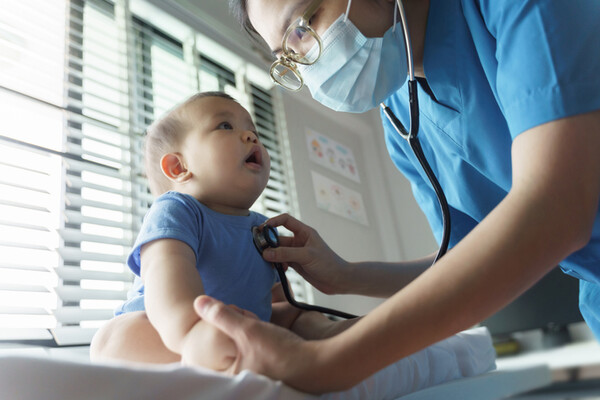The Korean government said its funding to hospitals for surgeries on severely ill children will drastically increase.
The Ministry of Health and Welfare announced the "Pediatric Essential Medical Care Fee Plan" on Friday at a regular briefing of the Central Disaster and Safety Headquarters.

Since last year, the ministry has been advocating for bolstering financial compensation for essential pediatric medical care. As a part of this initiative, it aims to increase health insurance payments by approximately 1.3 trillion won ($965 million) over the next five years.
As a new task to strengthen the supply of essential pediatric medical care and fair compensation, the ministry will significantly improve the age calculation for high-risk and difficult surgeries for children and establish regional policy surgeons for high-risk neonatal care, providing about 67 billion won a year.
Specifically, to enhance surgical reimbursement for critically ill children facing high-risk, high-complexity procedures, the ministry plans to extend age-based compensation for 281 surgeries to include children under six years old, along with the associated anesthesia procedures. Accordingly, it will extend the age addition, currently only available for neonates weighing less than 1,500 grams and children under one year for 281 high complexity procedures, to children under six and significantly increase the addition level from 300 percent to 1,000 percent.
The enhanced age addition will increase the fee for arterial occlusion, a surgery required for premature infants weighing less than 1,500 grams, by 2.5 times, from 7.1 million won to 17.6 million won. According to the ministry, there is no out-of-pocket expense for patients under the age of two, as they are exempt from the pediatric hospitalization co-payment rate. In addition to the overall increase in neonatal intensive care unit hospitalization fees implemented in January, a new regional policy fee for high-risk neonatal care will strengthen the foundation for high-risk neonatal care by securing specialized personnel in each region and fairly compensating current personnel.
As a result, the government will provide a flat fee per day per ICU inpatient for institutions operating regional centers for neonatal intensive care for high-risk neonates with full-time specialists in the neonatal intensive care unit (NICU). With the newly established regional policy fee, 16 regional pubic health centers in Gyeonggi Province and Incheon, excluding Seoul, will receive an average of 230 million won per institution per year, and 35 regional centers located in other regions will receive an average of 520 million won per year.
Related articles
- Resigned trainee pediatricians demand urgent policy to revive essential healthcare
- President Yoon calls for dialogue on med school quota amid ongoing healthcare crisis
- What are rare diseases that deter children's growth and their treatments?
- ‘Junior surgeons’ training period should be extended back to 4 years’

